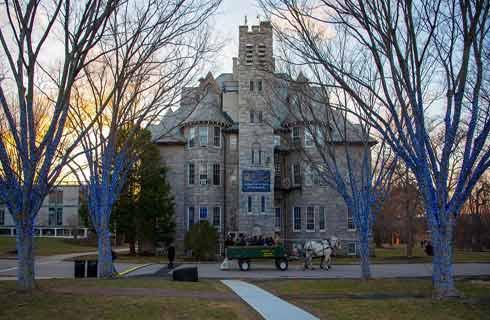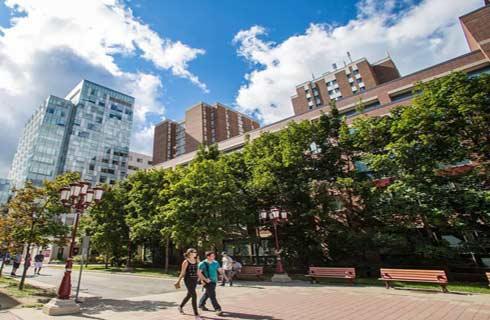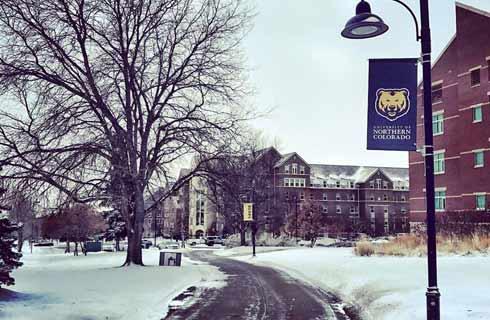理学学士(荣誉)分子和细胞生物学
BSc (Hons) Molecular and Cellular Biology with Biotechnology

学历文凭
Bachelor Degree with Honours

专业院系
School of Life Sciences

开学时间

课程时长

课程学费

国际学生入学条件
IDP—雅思考试联合主办方

雅思考试总分
- 雅思总分:
- 托福网考总分:
- 托福笔试总分:
- 其他语言考试:
CRICOS代码: C110
申请截止日期: 请与IDP联系 以获取详细信息。
课程简介
Biotechnology is essential for the development of new drugs, bio-control agents, energy, food security and vaccine development. Molecular cell biology is the fundamental discipline that underpins biotechnology. This covers understanding the molecular basis of gene and protein function and goes on to the design of completely artificial organisms. Biotechnology is a fascinating field of study with many practical applications to the challenges humanity faces.Molecular Cellular Biology with Biotechnolgy at the University of Glasgow continues to meet and exceed student expectations, combining both teaching excellence and a supportive learning environment. You’ll benefit from in depth lecture series on specialised topics that are aligned with practical laboratory classes, problem solving and critical thinking sessions.,. We strongly encourage applications for summer internships and help students to try to secure these either at the University of Glasgow or further afield.Practical classes access state of the art equipment and are developed and well supported by academic members of staff. You will study molecular aspects of protein design, biotechnology, plant biotechnology and antibody design. You will undertake a practical research project. This degree programme is professionally accredited by the Royal Society of Biology. You’ll be taught by world-leading scientists, whose research is making a world-changing impact in areas such as plant pest- and drought resistance, engineered CO2 assimilation, food security and vaccine design.Advances in molecular biology have been instrumental to the completion of many genome projects which in turn have led, and continue to lead, to exciting developments in medical science, agriculture, biotechnology and industry – for example, understanding the molecular basis of illness and disease to biotechnology for the development of new drugs, bio-control agents and the use of genetic engineering for vaccine development. Molecular biology is central to all biological processes and biotechnology applies the understanding of these processes to finding innovative solutions to today’s biological challenges.Many of our graduates go on to pursue a Masters degree or PhD in their area of specialism and work in research laboratories in academic institutions, biotechnology laboratories, or in industry. There are increasing opportunities in the agrochemical, pharmaceutical and fermentation industries, particularly for those graduates with interests in synthetic biology and biotechnology. Other areas of employment include the Scientific Civil Service and government research laboratories.In addition, the transferable skills you will develop such as communication (written and oral), critical thinking, problem solving, data analysis and interpretation, time management, adaptability, and teamwork, will leave you well equipped for a wide range of careers outside a laboratory setting. Recent graduates have secured positions in non-science careers as diverse as accountancy, IT, journalism, teaching, patent law, financeinvestment banking, data analyst, science communication, policy makers for government and law enforcement. With your degree you will be equipped with a large number of very desirable skills that will make you very competitive when applying to potential employers.
相关申请
 预科
预科 奖学金
奖学金 实习机会
实习机会 在校学习
在校学习 跨境学习
跨境学习 校园授课-线上开始
校园授课-线上开始 在线/远程学习
在线/远程学习
开学时间&学费
学费信息仅供参考,请与IDP联系以获取详细信息
| 开学时间 | 时长 | 学费 | 地点 |
|---|
学校排名

世界排名93
数据源:
泰晤士高等教育世界大学排名
关于格拉斯哥大学

格拉斯哥大学自1451年建校以来,始终致力于培养学生。该大学稳居全球百强大学之列,在2026年QS世界大学排名中位列第79位,在2025年泰晤士高等教育世界大学排名中位列第87位。2024年,格拉斯哥大学被《泰晤士报》和《星期日泰晤士报》优秀大学指南评为苏格兰年度大学。格拉斯哥大学是一所真正的国际化大学,拥有来自140多个国家的约43000名学生,并拥有超过9000名教职员工。它是英国顶尖研究型大学罗素集团的成员,也是Universitas 21(一个由全球研究型大学组成的网络)的创始成员。本科生可选择约100个单项荣誉学位和600多个联合荣誉学位组合。此外,大学还提供300多个授课型研究生课程和丰富的博士学位攻读机会。格拉斯哥大学毕业生就业能力位列英国前20名(QS毕业生就业能力排名,2022年),这意味着学生可以确信,他们的学位将为他们毕业后的生活做好准备。大学每年通过实习中心提供数百个实习机会,其强大的学生支持服务为学业、生活和财务方面提供帮助。格拉斯哥是英国第三大城市,被誉为全球友好且文化氛围浓厚的学生城市之一。格拉斯哥被誉为苏格兰的文化之都,拥有众多一流的博物馆、美术馆和建筑。格拉斯哥是英国第一个联合国教科文组织音乐之城,拥有 90 多个公园和花园、便利的交通和两座国际机场,为学习和旅游提供了理想的环境。
本校相关课程

动物学理学士(荣誉)
学历文凭
Bachelor Degree with Honours
开学日期
课程费用总额


BVMS兽医和外科
学历文凭
Bachelor Degree
开学日期
课程费用总额


理学士(荣誉)兽医生物科学
学历文凭
Bachelor Degree with Honours
开学日期
课程费用总额


BD(MIN)(荣誉)神学和宗教研究
学历文凭
Bachelor Degree with Honours
开学日期
课程费用总额


文学硕士(荣誉)戏剧研究
学历文凭
Bachelor Degree
开学日期
课程费用总额


BTechEd(荣誉)技术教育
学历文凭
Bachelor Degree with Honours
开学日期
课程费用总额

其他相关课程

生物医学学士
 皇家墨尔本理工大学
皇家墨尔本理工大学学历文凭
Bachelor Degree
开学日期
课程费用总额


哲学硕士-生物医学和生物化学
 澳大利亚国立大学
澳大利亚国立大学学历文凭
Masters Degree (Research)
开学日期
课程费用总额


生物医学学士
 詹姆斯·库克大学
詹姆斯·库克大学泰晤士高等教育世界大学排名:361
学历文凭
Bachelor Degree
开学日期
课程费用总额


理学学士(海洋生物学)
 弗林德斯大学
弗林德斯大学泰晤士高等教育世界大学排名:307
学历文凭
Bachelor Degree
开学日期
课程费用总额


理学学士-海洋生物学(荣誉学位)
 弗林德斯大学
弗林德斯大学泰晤士高等教育世界大学排名:307
学历文凭
Bachelor Degree with Honours
开学日期
课程费用总额


城市与环境规划学士/海洋生物学理学学士
 格里菲斯大学
格里菲斯大学泰晤士高等教育世界大学排名:258
学历文凭
Dual Degree
开学日期
02 March 2026
课程费用总额
AUD 167,500










 英国
英国